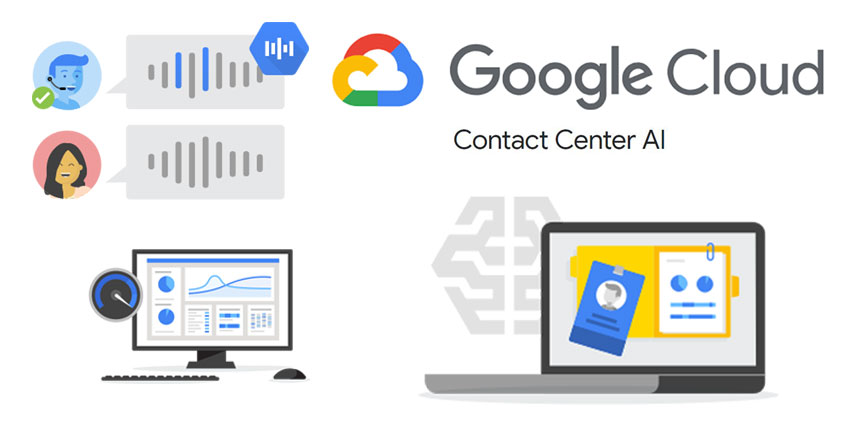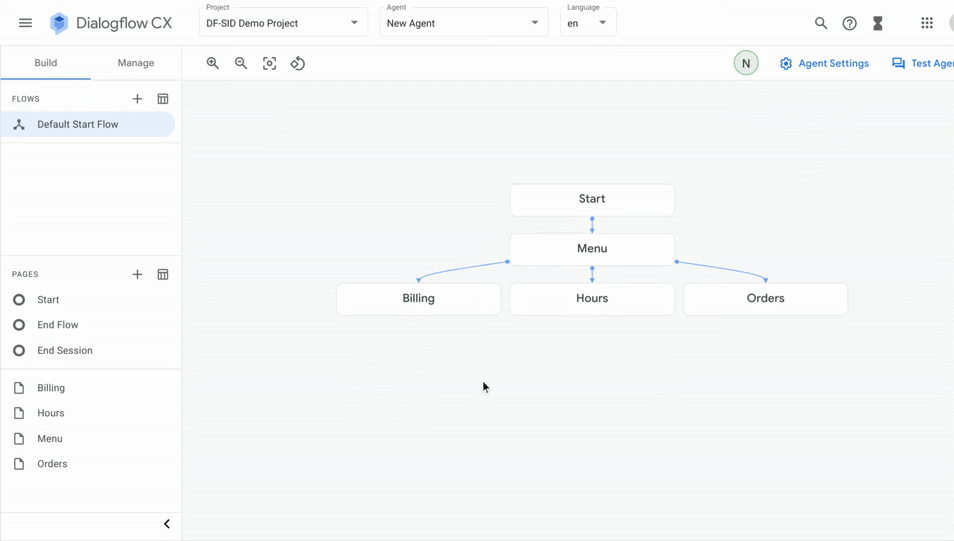 AI
AI
 AI
AI
 AI
AI
Companies that rely on Google LLC’s Contact Center AI service to automate their call center operations can now enable Speaker ID, a machine learning-based voice identification feature that allows callers to authenticate themselves easily by saying a few words.
Google Cloud launched Contact Center AI in November 2019. The service uses Google’s Dialogflow CX conversational artificial intelligence engine to automate customer service interactions with callers. Dialogflow CX powers virtual agents that can handle routine calls and text message queries and provide answers to common customer queries. If the caller has a more complex problem, it can hand the call over to a human agent.
Those human agents get access to a second feature in Contact Center AI. It’s called Agent Assist, and it relies on natural language processing to understand the caller’s intent and provide helpful resources to the agent so they can deal with them more efficiently.
Contact Center AI is all about handling customer queries as efficiently as possible, and Speaker ID will help to speed up the first step of each interaction. When a customer first gets through, the first step is the authentication process, which typically means providing a password or personal information that’s used to verify they are who they say they are. Google says this is not only inconvenient and potentially risky, but slows things down and wastes valuable agent time.
“While applying AI to these outdated policies can help to an extent, what is required is a complete reimagination of customer interaction that leverages the power of Conversational AI,” Google said in a blog post.
Speaker ID is the result of that complete reimagination – with it, callers can get away with saying a few words and automatically verify themselves without any hasse.
Google said the first time callers encounter Speaker ID, they’ll be asked to enroll and to identify themselves using existing processes, such as providing personal information. Once they’re authenticated, they’ll provide a brief voice sample that will be used to create a unique Speaker ID that’s linked to their customer profils.

Google Cloud Speaker ID is “text independent,” meaning customers can verify themselves using their voice by saying anything they want, as opposed to repeating a standard phrase.
With the integration of Speaker ID in Contact Center AI, Dialogflow will be able to leverage audio sent for intent detection and entity extraction too, Google said. In addition, Dialogflow now has pre-built components that make it simple for Contact Center AI users to enroll customers with Speaker ID using their chatbots.
Further, it’s possible to configure Dialogflow to perform what’s called passive verification, which means it will be able to recognize who the caller without prompting them to identify themselves. The caller will start speaking and Speaker ID will automatically know whom that person is.
Analyst Holger Mueller of Constellation Research Inc. told SiliconANGLE the Speaker ID feature is yet another key milestone achieved by AI, enabling human voices to be used for authentication.
“The value goes beyond that though as complete conversational flows can now be tailored and personalized without consumers needing to punch in any passwords or give up any of their personal information,” Mueller said. “It’s good to see Google providing this innovation with, now the question is when will we see it in action in the first call centers?.”
It may well be that Google’s customers may not be the first to get up and running, for its rivals in the contact center automation space are not sitting idly by. Indeed, Amazon Web Services Inc. actually pipped Google to the post when it launched Amazon Connect Voice ID earlier this week, providing similar functionality within Amazon Connect, which is an alternative service to Contact Center AI.
Google said Speaker ID is generally available for all Contact Center AI customers starting today. There is, however, a review process to ensure that customers’ use cases are aligned with Google’s AI principles and best practices to prevent any unethical abuse.
THANK YOU